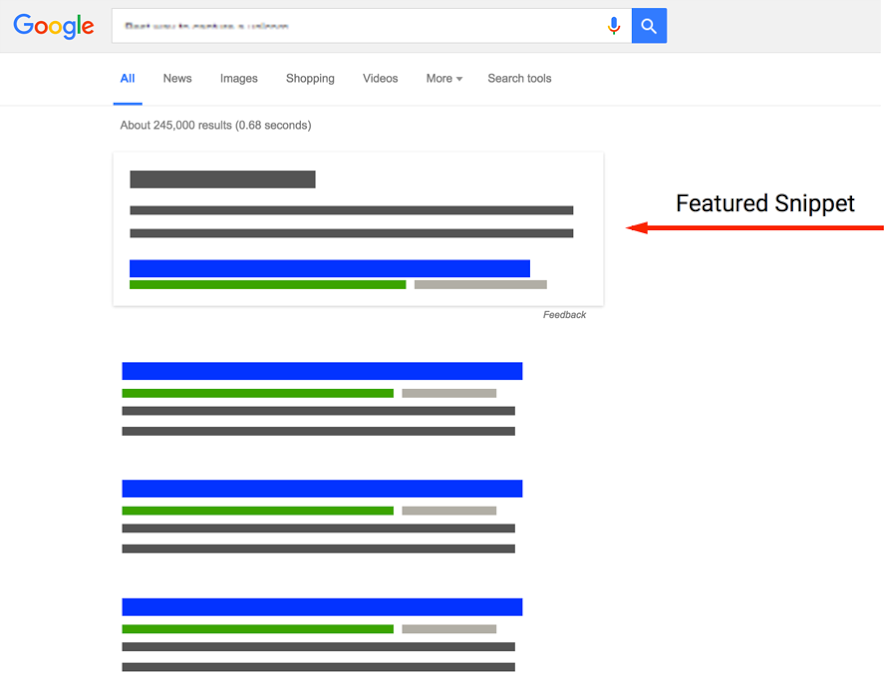SEO: How to Optimize Your Content for Voice Search

The era of voice assistants has come. It's time to take this technology seriously and to optimize your content for voice search.
 Samsung is up next with its approach, which will be called Bixby, and come with a large array of app integrations from the get go. Google also follows after Alexa and shows its Home Assistant. It may take another year, but at last, voice controls, and voice search will have become the norm.
For a couple of years now, the number of voice searches has been increasing continuously. However, the primary focus has always been on mobile devices. Alexa and the Home Assistant will definitely cause some serious momentum here.
Aside from the increased acceptance for people that talk to their smartphones, the technological progress is the primary factor responsible for the strengthening of voice assistants. By now, the processing power of mobile devices is high enough to handle the bandwidth of the internet, as is the processing power of the server farms that turn the voice input into actual data using artificial intelligence to generate logical answers.
The sub-type of machine learning that gets us this progress is called deep learning. Via neuronal webs, the machines learn to improve their answers on their own - in a way that's similar to how the human brain does it.
Samsung is up next with its approach, which will be called Bixby, and come with a large array of app integrations from the get go. Google also follows after Alexa and shows its Home Assistant. It may take another year, but at last, voice controls, and voice search will have become the norm.
For a couple of years now, the number of voice searches has been increasing continuously. However, the primary focus has always been on mobile devices. Alexa and the Home Assistant will definitely cause some serious momentum here.
Aside from the increased acceptance for people that talk to their smartphones, the technological progress is the primary factor responsible for the strengthening of voice assistants. By now, the processing power of mobile devices is high enough to handle the bandwidth of the internet, as is the processing power of the server farms that turn the voice input into actual data using artificial intelligence to generate logical answers.
The sub-type of machine learning that gets us this progress is called deep learning. Via neuronal webs, the machines learn to improve their answers on their own - in a way that's similar to how the human brain does it.
 Conversation is the Natural Way of Mining for Information.[/caption]
Instead of "Weather Freiburg," you ask "Hey Siri, how's the weather in Freiburg today?". Of course, this is a poor example, as Siri doesn't look this answer up on the web. But I think this clarifies the principle.
Thus, pages that have this exact question, and the respective answer in mind when creating their content give the best results. So, soon, we will not only optimize our content for one or two keywords, but also for key phrases which, in the ideal case, match the asked questions. We have to use the best content optimization tools and push out the most valuable content we possibly can.
Conversation is the Natural Way of Mining for Information.[/caption]
Instead of "Weather Freiburg," you ask "Hey Siri, how's the weather in Freiburg today?". Of course, this is a poor example, as Siri doesn't look this answer up on the web. But I think this clarifies the principle.
Thus, pages that have this exact question, and the respective answer in mind when creating their content give the best results. So, soon, we will not only optimize our content for one or two keywords, but also for key phrases which, in the ideal case, match the asked questions. We have to use the best content optimization tools and push out the most valuable content we possibly can.
 Google's Featured Snippets: Spot Zero in the SERPs."No way of influencing it" is not entirely correct, as there is no direct, but an indirect way of increasing the chances of being included in a featured snippet. This way is the following: Provide highly valuable content.
High-quality content is factually impeccable and proven. It contains supporting visuals, such as images, videos, or infographics. If it makes sense, statements are supported by extracts from publicly accessible databases. The topic is always covered to exhaustion so that there is no reason for the searching users to look into further sources.
This is how content optimization for featured snippets works, and it applies to voice search as well. There's another parallel. Google seems to prefer question-and-answer pages when filling their featured snippets. Thus, I'd bet that this will apply to voice search as well, as covering both questions and answers doesn't get much easier than that.
Google's Featured Snippets: Spot Zero in the SERPs."No way of influencing it" is not entirely correct, as there is no direct, but an indirect way of increasing the chances of being included in a featured snippet. This way is the following: Provide highly valuable content.
High-quality content is factually impeccable and proven. It contains supporting visuals, such as images, videos, or infographics. If it makes sense, statements are supported by extracts from publicly accessible databases. The topic is always covered to exhaustion so that there is no reason for the searching users to look into further sources.
This is how content optimization for featured snippets works, and it applies to voice search as well. There's another parallel. Google seems to prefer question-and-answer pages when filling their featured snippets. Thus, I'd bet that this will apply to voice search as well, as covering both questions and answers doesn't get much easier than that.
Suddenly, it Works: the Quick Rise of Voice Assistants
Surprisingly, neither Siri nor the Google assistant were the ones bringing the breakthrough for voice-based searching. It's Amazon's Alexa who ultimately turned the market around. I personally didn't keep an eye on that technology at all, but the US Americans keep buying Alexa like hot cake. Samsung is up next with its approach, which will be called Bixby, and come with a large array of app integrations from the get go. Google also follows after Alexa and shows its Home Assistant. It may take another year, but at last, voice controls, and voice search will have become the norm.
For a couple of years now, the number of voice searches has been increasing continuously. However, the primary focus has always been on mobile devices. Alexa and the Home Assistant will definitely cause some serious momentum here.
Aside from the increased acceptance for people that talk to their smartphones, the technological progress is the primary factor responsible for the strengthening of voice assistants. By now, the processing power of mobile devices is high enough to handle the bandwidth of the internet, as is the processing power of the server farms that turn the voice input into actual data using artificial intelligence to generate logical answers.
The sub-type of machine learning that gets us this progress is called deep learning. Via neuronal webs, the machines learn to improve their answers on their own - in a way that's similar to how the human brain does it.
Samsung is up next with its approach, which will be called Bixby, and come with a large array of app integrations from the get go. Google also follows after Alexa and shows its Home Assistant. It may take another year, but at last, voice controls, and voice search will have become the norm.
For a couple of years now, the number of voice searches has been increasing continuously. However, the primary focus has always been on mobile devices. Alexa and the Home Assistant will definitely cause some serious momentum here.
Aside from the increased acceptance for people that talk to their smartphones, the technological progress is the primary factor responsible for the strengthening of voice assistants. By now, the processing power of mobile devices is high enough to handle the bandwidth of the internet, as is the processing power of the server farms that turn the voice input into actual data using artificial intelligence to generate logical answers.
The sub-type of machine learning that gets us this progress is called deep learning. Via neuronal webs, the machines learn to improve their answers on their own - in a way that's similar to how the human brain does it.
Voice Search Works Like a Conversation
For the optimization of our content, and the detection and processing via voice-controlled searches, we have to acknowledge a couple of changes. Above all else, voice searches are no searches for one or two keywords, in contrast to desktop searches, or text-based searches in general. Voice search is always done as a complete sentence, mostly as questions. [caption id="attachment_101934" align="alignnone" width="1024"] Conversation is the Natural Way of Mining for Information.[/caption]
Instead of "Weather Freiburg," you ask "Hey Siri, how's the weather in Freiburg today?". Of course, this is a poor example, as Siri doesn't look this answer up on the web. But I think this clarifies the principle.
Thus, pages that have this exact question, and the respective answer in mind when creating their content give the best results. So, soon, we will not only optimize our content for one or two keywords, but also for key phrases which, in the ideal case, match the asked questions. We have to use the best content optimization tools and push out the most valuable content we possibly can.
Conversation is the Natural Way of Mining for Information.[/caption]
Instead of "Weather Freiburg," you ask "Hey Siri, how's the weather in Freiburg today?". Of course, this is a poor example, as Siri doesn't look this answer up on the web. But I think this clarifies the principle.
Thus, pages that have this exact question, and the respective answer in mind when creating their content give the best results. So, soon, we will not only optimize our content for one or two keywords, but also for key phrases which, in the ideal case, match the asked questions. We have to use the best content optimization tools and push out the most valuable content we possibly can.
Relevance is Even More Relevant For Voice Search
When answering voice-controlled searches, giving the most relevant answer is even more important to the search engine. After all, it can't pump out 500 pages of results and leave the rest to the user, but instead, it has to decide on the most relevant ones, at least if it wants to answer via speech as well. It's also to be assumed that answers like "I found this on the web" won't be around for too long anymore. Even here, expectations are rising. So this will come down to a content race. The one with the most valuable content wins. Our current situation is similar when looking at the featured snippets. Those are the information boxes that are on top of the search result list, which are selected by Google, without their operators having any way of influencing that. Google's Featured Snippets: Spot Zero in the SERPs."No way of influencing it" is not entirely correct, as there is no direct, but an indirect way of increasing the chances of being included in a featured snippet. This way is the following: Provide highly valuable content.
High-quality content is factually impeccable and proven. It contains supporting visuals, such as images, videos, or infographics. If it makes sense, statements are supported by extracts from publicly accessible databases. The topic is always covered to exhaustion so that there is no reason for the searching users to look into further sources.
This is how content optimization for featured snippets works, and it applies to voice search as well. There's another parallel. Google seems to prefer question-and-answer pages when filling their featured snippets. Thus, I'd bet that this will apply to voice search as well, as covering both questions and answers doesn't get much easier than that.
Google's Featured Snippets: Spot Zero in the SERPs."No way of influencing it" is not entirely correct, as there is no direct, but an indirect way of increasing the chances of being included in a featured snippet. This way is the following: Provide highly valuable content.
High-quality content is factually impeccable and proven. It contains supporting visuals, such as images, videos, or infographics. If it makes sense, statements are supported by extracts from publicly accessible databases. The topic is always covered to exhaustion so that there is no reason for the searching users to look into further sources.
This is how content optimization for featured snippets works, and it applies to voice search as well. There's another parallel. Google seems to prefer question-and-answer pages when filling their featured snippets. Thus, I'd bet that this will apply to voice search as well, as covering both questions and answers doesn't get much easier than that.
